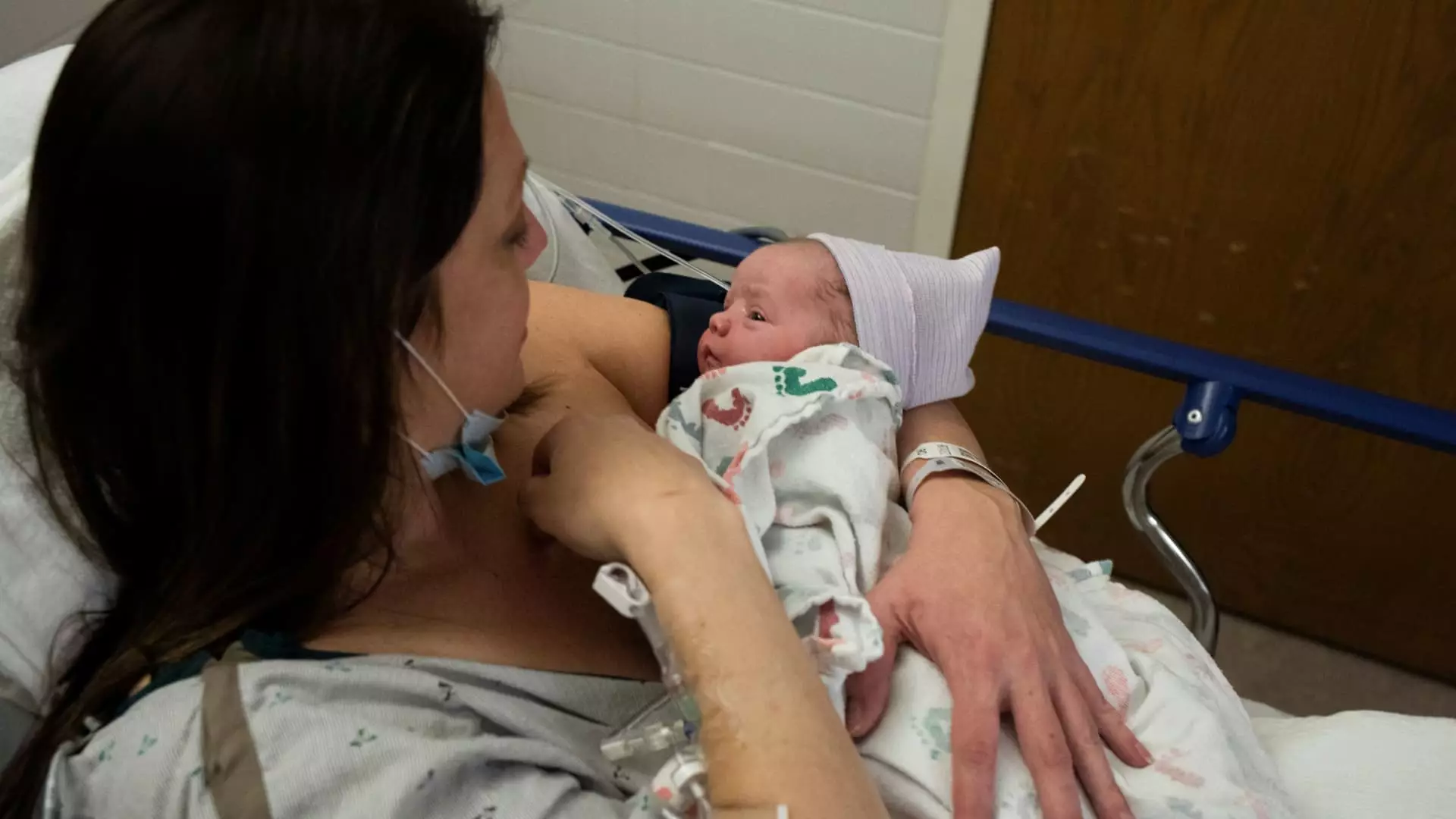In recent years, America has found itself ensnared in an alarming demographic trap, marked by one of the lowest fertility rates in history. Currently languishing at approximately 1.6 births per woman, the U.S. is far from the replacement level of 2.1 births required to sustain the population. This isn’t merely an abstract number; it’s a red flag warning of significant consequences for the economy, welfare programs, and, crucially, the future itself. Renowned economists like Melissa Kearney from the University of Maryland articulate a critical reality: “Our population will, in the not too distant future, start to decline.” The sentiment behind this statement should strike fear into the heart of any citizen concerned about the sustainability of social systems like Medicare and Social Security.
The Economic Quagmire Ahead
A declining birth rate isn’t just an issue for demographers peering through their lenses; it has tangible effects on the economy. With fewer births today, fewer workers will inevitably populate tomorrow’s labor market. The ramifications are profound. When professor Brad Wilcox highlights the concerns regarding the worker-to-retiree ratio, he exposes a core issue: the very fabric of our social safety nets hangs in the balance. If current trends continue, we could spiral into an economic abyss where government programs, reliant on a dwindling workforce, can no longer function effectively. It begs a vital question: are we, as a society, willing to sit idly by as we flirt with economic ruin due to demographic neglect?
Moreover, the reality of a shrinking workforce anticipates a ripple effect. With fewer hands to support a growing elderly population, reliance on benefits such as Social Security becomes an increasingly precarious proposition. The grim forecast is that America could face a drag on its economy, paralleling diminished capacity to uphold essential public services.
Policy Responses: A Band-Aid on a Bullet Wound
In response to this looming crisis, lawmakers have waded into murky waters, proposing a patchwork of financial incentives aimed at reviving birth rates. Recent proposals, including potential lump-sum payments of $5,000 for each newborn and expanded tax credits, signal an awareness at the highest levels of government. However, such measures seem hollow and insufficient. Financial incentives, while beneficial in intention, fall woefully short of addressing the complexities of parenthood today. Kearney asserts that simply throwing money at the issue will not sway those contemplating the profound commitment of raising a child. Parenthood is an 18-year journey—it’s about more than immediate financial relief; it involves the intricate balances of lifestyle choices, career ambitions, and emotional readiness.
In essence, the current policy approaches seem akin to slapping on a Band-Aid over a bullet wound. They fail to recognize the cultural forces shaping modern attitudes towards family and career, thus missing the mark on what is genuinely needed.
An Existential Cultural Shift
As we delve deeper into this issue, the underlying cultural factors cannot be overlooked. Economic uncertainty often serves as a motivator for couples to delay or forego having children, a trend that is not new. Yet, in an unprecedented twist, the birth rate did not rebound following the Great Recession—an insight that has left experts scratching their heads. Karen Guzzo highlights this phenomenon, urging us to reconsider our demographic narratives. The stark reality is that America is experiencing not merely an economic downturn but a profound cultural shift in attitudes surrounding parenthood.
In a society increasingly driven by the pursuit of individual success—be it in education, careers, or financial stability—parenthood may seem like an unnecessary burden. Many young adults perceive personal and professional growth as paramount, often at the expense of family formation. This is not just an issue of economics; it is a transformation in values and priorities that we must confront. Children are not merely future economic contributors but conduits of love, joy, and human connection. By prioritizing career ambitions over familial aspirations, are we wagering our humanity?
The current landscape calls for a radical rethink of not just our economic policies but also the very narrative we tell ourselves about the role and value of family in our lives. If America continues on this trajectory of neglect, we may inadvertently pave the way for societal collapse. The urgency of the matter cannot be overstated; we must recognize that nurturing a new generation is not merely an option—it is a necessity for the survival of our culture, economy, and future itself.

